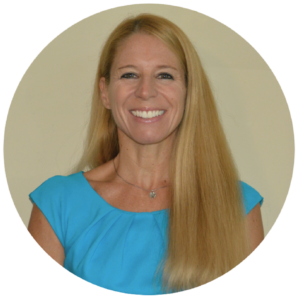By Katelynn Barbosa

Imagine you are planning a vacation to Maui (unthinkable in these times, I know) and browsing hotels online to decide where to stay. As you browse you have three predetermined requirements: You absolutely must have a king bed. (Your husband is a broad shouldered guy who splays out during his sleep like someone at the end of an unsuccessful parachute jump.) You also need to be located close to where many of your activities are planned. Lastly, you have to have an ocean view. There are other things you’d also like, but those three factors are your dealbreakers.
You are about to book at the Maui Wowee Hotel, located in the exact area you want to be that has free fancy breakfast every morning, Mai Tai happy hour from 4-6 every night, a private beach, and gorgeous ocean views. But, you notice the website doesn’t mention king beds so you disqualify the Maui Wowee Hotel and end up booking elsewhere.
When you get to Maui, you learn the Maui Wowee actually does have king beds, the fancy breakfast features four different types of bacon, and the Mai Tai happy hour is real and it is spectacular. Feeling like a sucker for paying $15/drink from 4-6, you wonder how they didn’t mention their king beds front and center on their website, or at least make it readily apparent somewhere?
Enter the experience of a hiring manager reading resumes and cover letters!
If your resume doesn’t make it clear that you meet the hiring organization’s qualifications, they are going to move on from you like you’re the king bed-less Maui Wowee Hotel.
The good news is that when it comes to hiring, organizations don’t hide what they are looking for. You never have to guess! Everything is always (at least if you are looking at Talent Market’s website) spelled out in the job description, bullet point by bullet point.
So, your job as an applicant is to address, bullet point by bullet point, either that you have the qualifications and experience that they want or to explain why they should consider you even though you don’t have it. This requires you to tailor your resume for every single job for which you apply.
And it certainly means you must do so for every cover letter you write. This might sound about as fun as a four hour delay sitting on the tarmac, but it is absolutely essential if you want to put your best foot forward and score an interview.
Case in point, we worked on a policy opening that called for five+ years of experience in a particular policy area. One candidate’s resume showed only two years of said experience. The organization decided to take a chance on the candidate and interview him anyway as a more junior candidate. Come to find out the candidate actually had more than five years of experience in that policy area, but failed to make that clear in the application package. This candidate had the good fortune of getting through the process despite leaving out critical information, but most in his shoes do not!
Here are three rules to follow when trying to clearly spell out your experience in your resume and cover letter:
- Display your experience in clean, straight forward bullet points. (Paragraphs in resumes make my eyes bleed.) And you can craft bullet points on your resume that correspond directly to bullet points in the job description. Could life get any easier for the hiring manager!?
- Volunteer experience can be as vital as paid experience. An experience does not have to be paid for it to go on your resume! Take the example of an opening that requires grants writing experience, which you have never done in an official work capacity. If you write grants on a volunteer basis for Hugs for Halitosis on the weekends, the hiring organization doesn’t care how you got that experience as long as you got it somewhere. Experience writing grants is experience writing grants regardless of whether you got paid to do it in American dollars or grateful smiles and a line thanking you in the HFH February newsletter. So treat that volunteer grants writing experience as you would any paid experience and list it as a separate work experience on your resume.
- If you don’t have the experience stated in a bullet point in a job description, address the elephant in the room in your cover letter. This is a perfect example of where cover letters are tremendously useful. To go back to the grants writing experience example, say you don’t volunteer writing grants (you volunteer for Hugs for Halitosis by planning the HFH Fall 5K). The next best thing you can do is to explain why that lack of experience shouldn’t disqualify you. Maybe you haven’t written a grant but you have tons of experience writing in a variety of different mediums, many of which are similar to the writing style required of grants, you have long sought to build your career writing grants, and this is your dream organization to work for. Say that in your cover letter! Grasping the nettle and addressing the experience you’re missing (which the hiring manager will absolutely notice) will show you have carefully read the job description, are respectful of what the organization is looking for, and will make a much stronger case for your candidacy than simply omitting it and remaining silent on the topic.
At the end of the day, always keep in mind that when a hiring manager is reviewing applications, unless they know you personally, all they have to go by is the resume and cover letter that you submit. If you have awesome experience that isn’t included in those documents, the hiring manager has no way of knowing that. So, it is paramount that your application materials demonstrate that you have king beds and free Mai Tais…er…meet all of the requirements in the job description!




